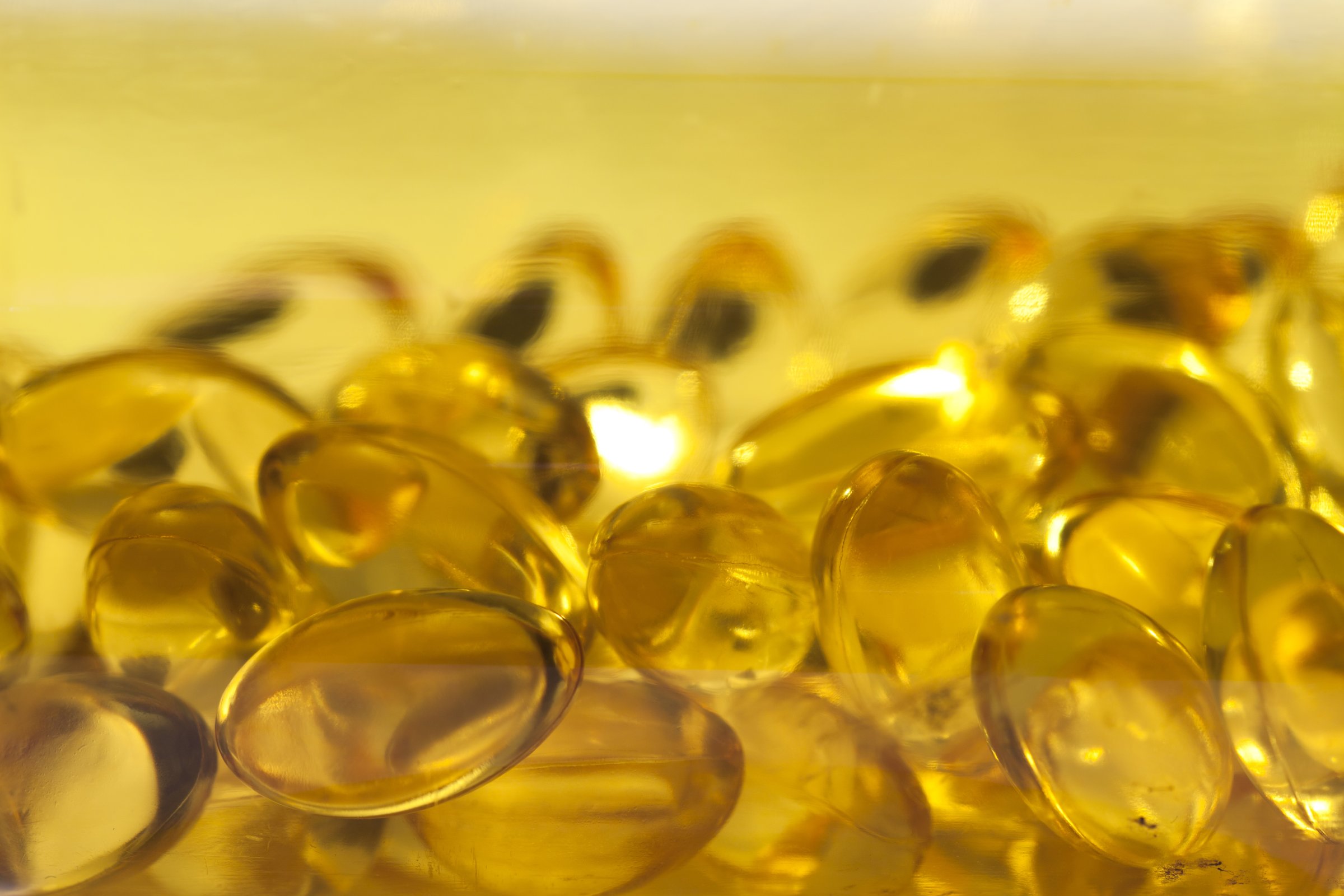
Many people take fish oil with the hopes of boosting their brain function, or alleviating depression, or reducing inflammation in the body. Some debate remains about the efficacy of fish oil supplements in producing these benefits in humans, but a new animal study published in the journal Scientific Reports finds that fish oil does appear to aid with weight loss—in mice.
In the Japanese study, the researchers fed two groups of mice fatty food, but one group had fish oil added to the chow. Mice that ate this food gained significantly less weight and less fat, compared to the group with regular chow. They also and had lower insulin and fasting glucose levels, plus a hotter core temperature.
The scientists then measured energy burn and found that the mice fed fish oil burned more calories—possibly due to an increase in brown fat, a kind of fat that burns calories. Other research has shown an anti-obesity effect of fish oil, the researchers write.
MORE: How Bacteria And Brown Fat Can Spur Weight Loss
Cold temperatures activate brown fat, earlier research has shown. “Your hypothalamus detects that, which in turn activates the sympathetic nervous system,” explains Dr. Majid Fotuhi, medical director of NeuroGrow Brain Fitness Center in Virginia, who was not involved in the study. When that happens, brown fat cells get the signal to generate heat through the activation of a protein called UCP1.
The scientists found higher levels of this particular protein, UCP1, in the mice who ate fish oil. They also found UCP1 in the white fat. Usually, Fotuhi says, white fat sits around in a useless mass, not doing much. But the white fat in mice who were fed fish oil contained high levels of the UCP1 protein—indicating that fish oil may help turn white fat into brown fat.
MORE: Eating Fish May Lower Your Risk For Depression
The researchers discovered that fish oil works on the receptor that activates UCP1. They verified these findings by knocking out that receptor in mice and feeding them fish oil; without the receptor, the mice didn’t lose weight or gain brown fat.
“This provides scientific evidence that fish oil can activate brown adipose tissue to burn fat and help with weight loss,” Fotuhi says.
What’s significant about the results, Fotuhi says, is that the researchers discovered the mechanism by which fish oil caused weight loss and brown fat production—at least in mice. Finding a drug that does do the same thing in people, obviously, is the “golden target.” But the science isn’t there yet.
“The results are preliminary, and I wouldn’t rush to buy a bottle of omega-3 fatty acids to lose weight,” Fotuhi says. (He does add, however, that doing so would likely confer brain benefits.)
For now, consider it good news for mice who want to lose weight. As for humans, stay tuned.
More Must-Reads From TIME
- The 100 Most Influential People of 2024
- The Revolution of Yulia Navalnaya
- 6 Compliments That Land Every Time
- What's the Deal With the Bitcoin Halving?
- If You're Dating Right Now , You're Brave: Column
- The AI That Could Heal a Divided Internet
- Fallout Is a Brilliant Model for the Future of Video Game Adaptations
- Want Weekly Recs on What to Watch, Read, and More? Sign Up for Worth Your Time
Write to Mandy Oaklander at mandy.oaklander@time.com